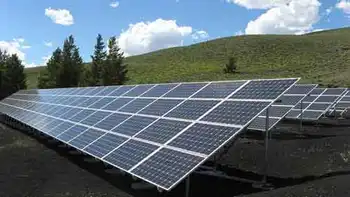China's power equipment utilization declines 6%
From January to October, the nation's accumulative domestic power consumption reached 2.98 trillion kWh, an increase of 2.79% year over year. However, the average use of power generation equipment reached 3,735 hours, a drop of 240 hours, or 6% year over year, according to the monthly report published by China Electricity Council on November 12.
The average use of hydropower equipment reached 2,961 hours, a drop of 191 hours year over year; and the average use of thermal power equipment reached 3,923 hours, a drop of 245 hours year over year. In total, there were 15 provinces and regions with utilization levels above the national average of 3,735 hours: Guizhou, Jiangsu, Xinjiang, Liaoning, Hebei, Ningxia, Yunnan, Tianjin, Shandong, Qinghai, Jilin, Shanxi, Anhui, Fujian and Zhejiang.
Investment in China's power sector remained high, with several units commissioned in the period. From January to October, the national investment in power source projects reached $33.96 billion, including $7.38 billion for hydropower, $14.74 billion for thermal power, $6.17 billion for nuclear power and $5.57 billion for wind power. From January to October, the newly added production capacity of power sources reached 58,570 megawatts (MW), including 12,750 MW for hydropower, 41,290 MW for thermal power, and 4,560 MW for wind power. The national investment in power grid projects reached $36.37 billion in the same period.
At of the end of October, the total installed capacity of power plants of 6 MW or above in China reached 805,820 MW, an increase of 9.4% year over year. Of this, installed capacity of hydropower reached 157,020 MW, an increase of 13.8%; thermal power reached 625,440 MW, an increase of 7.6%; wind power reached 13,970 MW, an increase of 83.6%; and nuclear power reached 9,080 MW.
Related News

Japan to host one of world's largest biomass power plants
TOKYO - Power supplier eRex will build its largest biomass power plant to date in Japan, hoping the facility's scale will provide healthy margins and a means of skipping the government's feed-in tariff program.
The Tokyo-based electric company is in the process of selecting a location, most likely in eastern Japan. It aims to open the plant around 2024 or 2025 following a feasibility study. The facility will cost an estimated 90 billion yen ($812 million) or so, and have an output of 300 megawatts -- enough to supply about 700,000 households. ERex may work with a regional utility or other…





